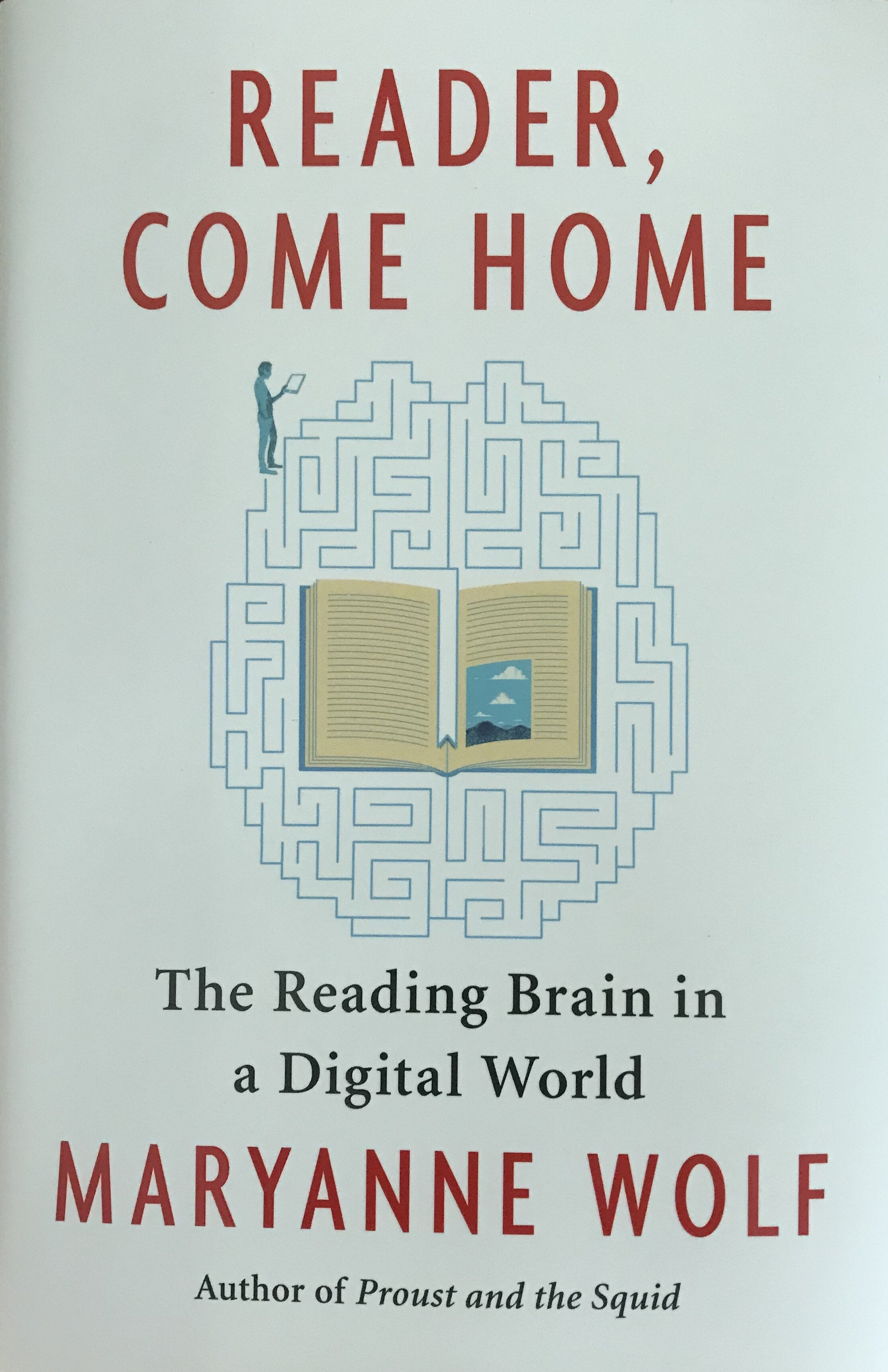Epistolary Day: Children and the Digital World
 Dear Maryanne Wolf,I used to be a restless kid, and yet I learned to read. It gave me a pathway into the life I have now, the writing life. Reading and writing together have helped me through troubled times, have helped me make sense of the world or question it or rail against its injustices.Letter Five in your book made me profoundly sad for the children of tomorrow. You raise disturbing questions: what will digital media do to children's malleable brains? Will their reading circuits be altered, and if so, how? You write about memory, and what it takes to form it, and how attention, grabbed in rapidfire sequence, detracts from the formation of a working memory.Then I wanted to cheer when you wrote, in Chapter Six, of the incredible importance of reading to kids. Don't move too fast to screens and devices, you write. You beg parents to embrace the endless rereading of a favorite book.The first two years of the reading life, you say, should be the equivalent of Julian of Norwich's beautiful exhortation:
Dear Maryanne Wolf,I used to be a restless kid, and yet I learned to read. It gave me a pathway into the life I have now, the writing life. Reading and writing together have helped me through troubled times, have helped me make sense of the world or question it or rail against its injustices.Letter Five in your book made me profoundly sad for the children of tomorrow. You raise disturbing questions: what will digital media do to children's malleable brains? Will their reading circuits be altered, and if so, how? You write about memory, and what it takes to form it, and how attention, grabbed in rapidfire sequence, detracts from the formation of a working memory.Then I wanted to cheer when you wrote, in Chapter Six, of the incredible importance of reading to kids. Don't move too fast to screens and devices, you write. You beg parents to embrace the endless rereading of a favorite book.The first two years of the reading life, you say, should be the equivalent of Julian of Norwich's beautiful exhortation:
All shall be well, and all shall be well, and all manner of things shall be well.
How to make all manner of things well in the reading worlds of the young? The digital page is a fake. I know that, even as I use it here to reply to your book. I know I can use the computer and the phone as tools, but that's only because because I learned to read with the real thing. I can switch in and out of the technology while not succumbing to its flaws. I'm lucky only because I'm old enough.That real book, the tree-based object I have given my life to, is something that young children should feel the joy of "reading" with their whole bodies and older children should be allowed to read with their entire, undivided attention. Toddlers can't put an iPad in their mouths. The Internet can't begin to build a moral foundation for a teenager.